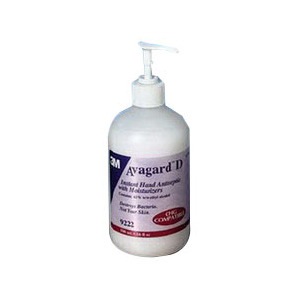Dermatologist Recommended Skin Care Products

So the Big Question Is…
What do You Need to do to Take Care of Your Face?
1. Wash your face once a day with a simple pH balanced soap/cleanser.
2. Use a simple moisturizer if you are prone to acne/rosacea/allergy to skin products.
3. Wear sunscreen every single day on your face.
4. Wear a lip sunscreen.
Skin Care Products for Your Face
Washing Your Face
Over washing the face dries it out, removes the normal lipids and fats, alters the pH, alters the normal essential proteins in the skin, and may even cause inflammation.
Soap is used by billions of people every day. There are no safety criteria that determine whether soap is mild or good for sensitive skin. In fact, well know products that claim to be good for sensitive skin have been shown to cause major irritation. Recent data has shown that chronic insults to the skin (over washing and even washing twice a day may be over washing) may actually induce skin disease. There is no question that soap worsens some skin diseases like eczema.
The benefit of using soap is that it removes dirt, sebum (oil), sweat and microorganisms (bacteria). Soap exfoliates the dead cells from the upper layer of the skin and adds fats or lipids back into the upper layer of the skin (stratum corneum).
The stratum corneum, or the upper layer of the skin, (the pink part in the cartoon above) looks a bit like a brick wall. The cells of the walls are the bricks and the lipids or fats are the mortar between the bricks. The mortar or lipids make up 20% of the upper layer of the skin. The lipids or fats have two important functions: permeability and antimicrobial barrier. The lipids in the skin actually provide the barrier in our skin. When these lipids are scrubbed away the barrier is disrupted. We need this epidermal layer to be intact and healthy because its function is to protect the skin from abrasion and chemical injury.
Wash your face when it is dirty and wash with pH balanced soap or cleanser ONE time a day. The pH-balanced cleansers include Dove, Cetaphil Cleanser for Normal to Oily Skin, CeraVe Cleanser and Vanicream Cleanser. Soaps that have a high pH include Johnson’s Baby Wash and Shampoo, Zest, and Ivory.
Gently wash your face only once a day. Gently wash with your fingertips for about 30 seconds. Avoid gritty soaps that inflame and irritate the skin. Interestingly it is this inflammation that causes swelling of the skin and the temporary appearance of plumper skin!
Exfoliation is not necessary. If you have fair skin you can get away with exfoliation but if you have darker skin tones you should avoid exfoliation. Exfoliation works by:
- Irritation of the skin that leads to swelling and temporary plumping. This process gives the appearance of less wrinkling.
- BEWARE: Darker skin tones are at an increase risk of pigmentation.
pH of Skin
What is pH and what does the pH measure?
- Pure water has a pH of 7.
- pH < 7 acidic
- pH > 7 basic (alkaline)
- barrier function of the skin
- moisturization of the skin
- scaling of the skin
The skin has an acidic pH. The pH of the skin ranges from 5.5 – 5.9. Try to choose skin care products that have a pH between 5.0-6.0. This range acts as a gradient, or a ladder, that controls our normal skin enzyme activity as well as the new growth of the skin cells. There are many factors involved in maintaining the pH of skin including: microbes (like bacteria), products from sebaceous or oil glands as well as eccrine or sweat glands. In addition, Urocanic acid which is produced as a by-product of fillagrin (natural moisturizing factor) is essential in maintaining the acidic pH of the skin.
Studies have shown that the pH of soap is directly correlated with IRRITANCY! High or alkaline pH soaps are irritating! Studies have also shown that alkaline or high pH soaps increase ACNE! The bacteria in acne called Propionibacterium acnes (P. Acnes), overgrows when the skin pH is alkaline or high. There is good evidence to show that skin will break out more when washing with soaps that are high in pH.
Moisturizing Your Face
Moisturize if you want. A moisturizer will temporarily plump your skin giving the temporary appearance of less wrinkling. Applying moisturizer DOES NOT prevent wrinkles. Sunscreen and sun protection (hats and shade) will prevent wrinkles. A good moisturizer will temporarily plump your skin by trapping and holding in water on your skin. The plumping is temporary. Many moisturizers claim “age defying” properties. If you look at the active ingredient on these products you will be surprised to see that the “active ingredient” is… SUNSCREEN!!!
Moisturizers WILL NOT prevent wrinkles! Only sun protection will prevent pre-mature wrinkling. If you look at the skin on your abdomen or buttock and compare it to the skin on your face you will easily see that the areas of your skin that have seen little or no sun have little or no freckling or brown spots. Sun damage is the primary cause of premature aging of the skin on the face in Portland.
Applying a moisturizer will hydrate your skin. Recommended moisturizers are Neutrogena Healthy Skin, Cetaphil, Vanicream Lite, CeraVe AM and PM face lotion, Rosewater in Glycerin (a two ingredient moisturizer).
I like and recommend, moisturizers that contain few ingredients, especially that are free of botanicals or plant based ingredients. Botanicals are the perfect size chemical to be introduced to your body as an allergen!! I have a special interest in contact dermatitis, so it is natural I would want my patients in Portland to avoid products that may become allergens.
So, “natural” is not better! The FDA does not regulate the word “natural”. Natural has many different meanings. Hypoallergenic does not mean it will not cause an allergy! Many hypoallergenic products contain chemicals that can cause an allergic contact dermatitis. Even products that claim “non-allergenic” may contain chemicals that are known to cause allergic contact dermatitis. The FDA does not regulate the word “hypoallergenic”! So, SIMPLE is the best approach.
Sunscreen for Your Face
Don’t not forget to wear sunscreen every day, even when it is cloudy in Portland. Facial skin gets constant year-round, sun exposure and as a result of this, our facial skin is the primary area that is most prone to premature wrinkling and sun damage. Look at the sites on your skin that get constant sun exposure like your face and compare your skin to the areas that don’t get much sun. It is easy to see that the sun is the cause of wrinkles, freckles, and thinning of the skin.
Sun protection on the face is the most important thing you can do to prevent further premature aging. For women, a mineral based powder and foundation are very effective forms of sunscreens.
The active and main ingredient in powder or liquid foundation is zinc oxide and titanium dioxide. These two ingredients are excellent broad spectrum UVA-UVB physical sunscreens. They protect skin nicely and are safe for every day use. Women who wear “makeup” have sun protection that lasts all day because they have a physical sunscreen protecting their skin. Unfortunately, chemical sunscreens have a shorter life and need to be reapplied frequently. A chemical lotion sunscreen applied at 7:00 am is not going to protect you at 2:00 pm.
When you are going to be playing in the sun and in the water you may want to use a chemical sunscreen. But remember, RE-APPLY SUNSCREEN FREQUENTLY to be effective. Most people put on about ½ as much sunscreen as they need to get the SPF rating on the bottle. So, you may want to apply the sunscreen and then re-apply it right away to get closer to the SPF rating on the bottle. Alcohol-containing spray sunscreens like Neutrogena Cooling Mist, do a very good job of protecting the skin from sunburn and suntan as this product does not run into the eyes due to sweating. Alcohol-based SPF’s are less likely to cause acne outbreaks. DO not spray the sunscreen onto your face. Spray product into the palms of your hands and then apply liberally to facial skin. Be careful not to breathe in the sunscreen spray while you are applying it. The sprays have broad-spectrum UVA-UVB coverage. The FDA has legislated that sunscreens must have full, broad-coverage or they cannot be labeled to protect the skin from cancer-causing UVA-UVB rays.
Also, sunscreens used on the face have a tendency to cause acne outbreaks even if they say they are “oil free”. Oil free does not mean acne free!
Skin Care Products for Your Hands
Protect from water – especially for extended periods of time. Water is an irritant. Excessive wetting and drying of the hands will lead to irritant hand dermatitis in some individuals.
 Individuals who must wash their hands multiple times a day may want to try using AVAGARD D, which is a waterless 60% alcohol based hand sanitizer with moisturizers. It kills bacteria better than soap and water in most cases and it is much less likely to dry out the skin. It is also less irritating than 100% alcohol hand sanitizers.
Individuals who must wash their hands multiple times a day may want to try using AVAGARD D, which is a waterless 60% alcohol based hand sanitizer with moisturizers. It kills bacteria better than soap and water in most cases and it is much less likely to dry out the skin. It is also less irritating than 100% alcohol hand sanitizers.
Also apply a cotton liner inside a rubber or vinyl glove if you are working in water for extended periods of time. The cotton liner will prevent the sweating that occurs inside rubber gloves.
Use Vaseline to lubricate your hands when they are very dry. Vaseline is good because it is a one-ingredient product with no risk of allergy. It is also very greasy and will trap in water from hand washing. Apply Vaseline to your hands every time you wash them. It is okay to wipe off the excess off the palms of your hands after you apply it. Also, you might try applying Vaseline under a cotton glove to help deeply moisturize your hands while you are sleeping. The main ingredient in a lotion is water. Water evaporates off the skin quickly so using a higher-quality moisturizer that has very little water, is a better option for the hands. Also: Remember to put sunscreen on your hands every day.
Skin Care Products for Your Body
Moisturizing Your Body
Soaking in the tub for 20-30 minutes followed by a greasy moisturizer is the best. Neutrogena Body Oil is one product that is highly recommended after bathing. Other appropriate moisturizers are CeraVe, Cetaphil, and Vanicream. Apply the moisturizer to your skin within a minute or two of getting out of the tub to trap in the water from the bath. Showers are ok, but not as hydrating as a bath. Use pH balanced soaps in the bath as well. Vanicream soap, Cetaphil soap, CeraVe cleanser are mild.
Skin Care Products for Your Hair
Washing Your Hair
 Use a pH-balanced shampoo and wash less often to minimize drying of the hair. The pH of our skin is around 5.0 — Free & Clear Shampoo is a good example.
Use a pH-balanced shampoo and wash less often to minimize drying of the hair. The pH of our skin is around 5.0 — Free & Clear Shampoo is a good example.
Reversing Sun Damage
Tretinoin, or Retin-A, has been shown to reverse sun damage. Tretinoin is used at night. You will need a prescription for this product. Using this product increases your risk of sunburn. You should avoid waxing to areas of the face, while using this product. Some people get mild facial redness and irritation from using Tretinoin.
 Tretinoin changes the structure & function of the skin.
Tretinoin changes the structure & function of the skin.
- Increases collagen synthesis.
- Increases normal elastic tissue.
- PROVEN to reverse sun damage
How Cosmetics Relate to Skin Care
Cosmetics CANNOT change the structure or function of the skin. Cosmetics may temporarily beautify the skin. Most cosmetic companies target women consumers. Their major focus are products used on the face. There are hundreds of thousands of products to choose from. Based on the FDA definition a Cosmetic is intended to be applied to the human body for:
- Cleansing
- Beautifying
- Promoting attractiveness
- Temporarily altering the appearance
Cosmetics:
- MAY exaggerate claims
- MAY contain ingredients shown to reverse aging in studies.
- If a study shows a change in skin structure or function, it must be classified as A DRUG and not a COSMETIC!
- Cosmetics are not subject to FDA approval.


